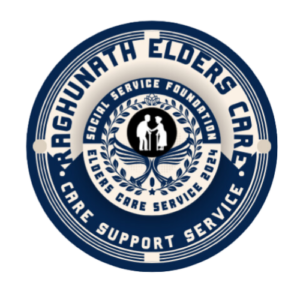- As populations around the world continue to age, the need for comprehensive elderly care is becoming increasingly important. Elderly care is a broad term that encompasses the various services and assistance provided to senior citizens to help them maintain their well-being, dignity, and quality of life as they age. This care can range from support with daily living activities to providing specialized medical attention and emotional companionship.
- Elderly care is essential not only for the physical health of senior citizens but also for their emotional and psychological well-being. The aging process often brings about physical limitations, cognitive decline, and sometimes social isolation, all of which can affect an elderly person’s quality of life. Care for the elderly helps mitigate these challenges and ensures that seniors live their later years with comfort, respect, and a sense of independence.
Understanding Elderly Care
- Elderly care refers to the support provided to older adults who are dealing with the physical, emotional, and medical challenges that come with aging. It includes a wide range of services, from simple assistance with daily activities to more complex medical interventions. Elderly care can be provided in various settings, including in the home, at assisted living facilities, in nursing homes, or in hospitals, depending on the senior’s needs.
- The goal of elderly care is to ensure that seniors can live their lives as independently as possible while also providing the necessary support for any limitations or health issues they may experience. As people age, they often face challenges such as reduced mobility, chronic health conditions, memory problems, or difficulty with tasks that were once easy. Elderly care is designed to meet these needs and improve the overall quality of life for seniors.
Why Elderly Care is Important
There are several reasons why elderly care is critical to ensuring the well-being of older adults:
- Ensuring Safety and Comfort: Seniors often face mobility issues, chronic illnesses, and cognitive decline, all of which can increase the risk of accidents, falls, or medical complications. Elderly care helps create a safe environment where seniors can be monitored and assisted when necessary, reducing the risk of injury or harm.
- Promoting Independence and Dignity: One of the primary goals of elderly care is to help seniors maintain their independence as much as possible. Care services are tailored to each individual’s needs, ensuring that they retain their dignity and self-respect while receiving the assistance required for daily tasks.
- Managing Health Conditions: Many seniors suffer from chronic health conditions such as diabetes, arthritis, heart disease, or cognitive impairments like dementia. Elderly care provides professional medical support to manage these conditions, ensuring that seniors receive timely medication, medical attention, and monitoring of vital signs.
- Preventing Isolation and Depression: Loneliness and isolation are common challenges for seniors, particularly those who live alone or are far from their families. Elderly care provides companionship and social interaction, which are vital for preventing feelings of loneliness, depression, and anxiety in older adults.
- Providing Family Support: Many families are unable to provide the level of care that their elderly relatives require, either due to distance, work commitments, or a lack of expertise. Elderly care services help alleviate the stress on families by providing trained caregivers who can handle the physical, emotional, and medical needs of their loved ones.
Types of Elderly Care
Elderly care is not a one-size-fits-all solution. The type of care that an individual requires depends on their specific needs, health status, and preferences. Here are some of the most common types of elderly care:
1. In-Home Care
In-home care is a service provided to seniors who prefer to remain in the comfort of their own home while receiving assistance with daily activities. This type of care is ideal for seniors who need help with basic tasks but do not require the intensive medical care provided in hospitals or nursing homes. In-home care can be tailored to meet the needs of the individual and may include:
- Personal Care: Assistance with bathing, grooming, dressing, and other hygiene-related tasks.
- Mobility Assistance: Helping seniors move around the house, transfer from bed to chair, or walk safely.
- Companionship: Offering social interaction to combat loneliness and encourage mental and emotional well-being.
- Medication Management: Ensuring that seniors take their medications on time and in the correct dosages.
- Household Assistance: Providing help with light housekeeping, meal preparation, shopping, and laundry.
In-home care allows seniors to remain in a familiar environment and helps them retain a sense of independence while still receiving the support they need.
2. Assisted Living
Assisted living facilities provide a higher level of care than in-home care but still allow seniors to maintain a certain level of independence. These facilities are designed for seniors who need help with certain activities of daily living but do not require full-time medical care. Assisted living services may include:
- 24-Hour Care and Supervision: Staff is available around the clock to provide assistance when needed and to respond to emergencies.
- Personal Assistance: Help with activities such as bathing, dressing, grooming, and eating.
- Medication Assistance: Reminding residents to take their medications and managing prescriptions.
- Meals and Housekeeping: Providing regular meals and maintaining a clean living environment.
- Social Activities: Offering programs and activities to help residents stay active, engaged, and socially connected.
Assisted living is ideal for seniors who can still live relatively independently but need support with daily tasks and a social community.
3. Nursing Homes
Nursing homes provide the highest level of care for seniors who have complex medical needs or require continuous supervision. These facilities are designed for individuals who need help with daily activities but also require skilled nursing care due to health conditions, illnesses, or injuries. Services provided in nursing homes include:
- Skilled Medical Care: Registered nurses and physicians are available to manage chronic conditions, administer medications, and provide treatment for illnesses or injuries.
- Physical and Occupational Therapy: Therapy services are available for seniors recovering from surgery, stroke, or injury.
- Personal Care and Assistance: Help with bathing, dressing, eating, and mobility.
- 24-Hour Supervision: Continuous monitoring to ensure the safety and well-being of residents.
- End-of-Life Care: Many nursing homes also provide hospice care for seniors nearing the end of life, offering comfort and support during this difficult time.
Nursing homes are best suited for seniors who need full-time care and medical attention due to advanced age, illness, or disability.
4. Hospice and Palliative Care
Hospice care is a type of end-of-life care designed to provide comfort and support to individuals with terminal illnesses. This care focuses on pain relief, emotional support, and quality of life rather than trying to cure the illness. Palliative care, a broader form of comfort care, can be provided at any stage of illness, not just end-of-life.
- Pain Management: Providing relief from physical pain and discomfort associated with terminal illnesses.
- Emotional and Psychological Support: Offering counseling, spiritual care, and support for both the patient and their family.
- Family Support: Helping families cope with the emotional challenges of caring for a loved one during their final stages of life.
- Home or Facility Care: Hospice and palliative care can be provided either at home or in a specialized facility.
Hospice and palliative care offer a compassionate approach to end-of-life care, helping seniors and their families navigate this difficult time with dignity and comfort.
Benefits of Elderly Care
Elderly care offers numerous benefits not only to seniors but also to their families and communities. Some of the key advantages of elderly care include:
- Enhanced Quality of Life: Elderly care services help seniors maintain their physical and mental health, improving their overall quality of life. Caregivers can assist with managing health conditions, ensuring medication adherence, and encouraging social interaction.
- Peace of Mind for Families: Families often struggle to balance caregiving responsibilities with work and personal commitments. Elderly care services provide families with peace of mind, knowing that their loved ones are receiving professional care and attention.
- Improved Socialization: Seniors who live alone or have limited social interaction can experience feelings of isolation and depression. Elderly care encourages socialization, which can improve emotional well-being and reduce loneliness.
- Better Health Outcomes: With professional assistance, seniors can better manage their health conditions and prevent complications. Regular monitoring of vital signs, medication adherence, and therapeutic support can help seniors stay healthier for longer.
Conclusion
Elderly care is an essential service that plays a vital role in enhancing the quality of life for senior citizens. With the aging population on the rise, the demand for elderly care services will continue to grow, offering seniors the support they need to live with dignity, comfort, and independence. Whether provided at home, in assisted living facilities, or in nursing homes, elderly care ensures that seniors receive the physical, emotional, and medical support they need to age gracefully. By offering compassionate care, elderly care services help seniors navigate the challenges of aging while improving their overall well-being and preserving their quality of life.




